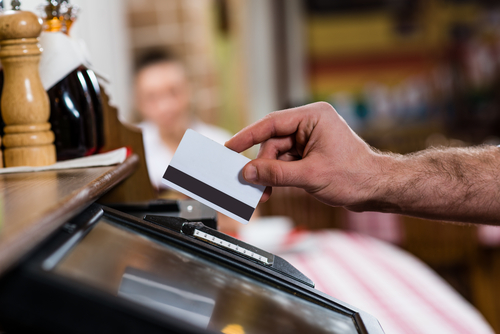
One in five Americans say they’ve experienced identity theft, according to a poll by Gallup. In addition, 62 percent of those who had their identity stolen say someone charged purchases on their credit card. Identity theft and credit card fraud are pervasive threats around the world, but particularly in the United States. Global card losses in the United States is responsible for 48.2 percent of the share of total global card losses. Card fraud also rose by 19 percent while sales volume grew by 15 percent.
The statistics may look alarming, but there are ways you can protect yourself from fraud. Anyone can employ common sense tactics, such as protecting their cards and using them sparingly. But if you want something more advanced, here are five sophisticated ways to protect yourself from credit card fraud and stay ahead of the rise in crime.
Only Use EMV Readers
As of October 2015, merchants are liable for credit fraud and liability unless they adapted to the EMV chip and pin technology. EMV stands for Europay, MasterCard and Visa, and it contains a secure microchip on the front of the card that provides a new level of security to protect your information. You’ll know if you’re using an EMV-enabled reader if you can insert your card into the machine to read your credit card chip instead of swiping your card.
Even the smallest business owners selling at farmers markets and one-on-one with customers can adopt an EMV reader. To help protect your information, purchase goods only from merchants that use EMV readers.
Notify Your Creditors When Traveling
Contact your credit card companies, banks and other financial institutions before traveling and let them know the dates you will be gone. Bank and debit card crime is on the rise in Mexico, among other countries, and should be diligently monitored, claims Mexico News Daily. But it’s not just crime that happens while you’re traveling. It’s not uncommon for ATM cards to be compromised months after returning from a trip abroad. If your credit card companies and banks know your travel plans and where you’ve been, they can be more diligent in protecting your accounts and identity.
Monitor Your Credit Score Diligently
Requesting a free credit score from AnnualCreditReport.com is only the first step in credit score monitoring. Study the credit reports for any errors and check for fraud. Afterward, it’s important to stay on top of your credit score. Use an identity theft monitoring service like LifeLock to get alerts on when credit cards, utilities and other accounts are set up in your name. Such companies can help stop fraud in its tracks and help restore your credit as needed.
Watch out for Spear Phishing
Spear phishing makes it easy for criminals to glean your personal information from Facebook, Instagram and other social media accounts and use it to their advantage. Next, identity thieves send you an email asking you to click on a site and sign in to address an urgent matter. The email can also be made to look like it’s from a personal contact from your electronic address book. Even if the link appears to be from your bank or creditors, delete the email. Instead, call the number on the back of your card and speak to a representative to find out the validity of the communication or to report the phishing.






